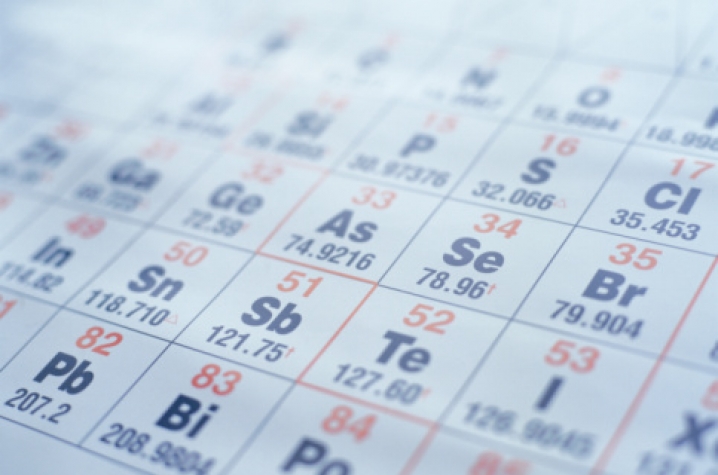UK To Host Metals Toxicity Conference in Lexington

LEXINGTON, Ky. (Nov. 9, 2010) − The University of Kentucky will host a scientific meeting of researchers studying the toxic and cancer-causing effects of metals. The meeting will take place Nov. 14-17 at the Hilton hotel in downtown Lexington.
The Sixth Conference on Molecular Mechanisms of Metal Toxicity and Carcinogenesis is the only meeting of its kind in the world, says Xianglin Shi, professor in the UK Graduate Center for Toxicology. Around 100 researchers, from institutions around the United States and eight foreign countries, are expected to attend.
"This is not a narrow field," says Shi, who holds the William A. Marquard Chair in Cancer Research and is the Markey Cancer Center's associate director for cancer chemoprevention and environmental toxicology. "Metals are literally everywhere, and all kinds of metals — metals such as arsenic, chromium, nickel and cobalt — have the potential for toxicity and carcinogenesis."
Research into the molecular mechanisms of metals toxicity has value both in terms of risk assessment (figuring out where the significant sources of contamination are) and abatement (figuring out how to contain contamination and reduce exposure). Accordingly, the conference attracts researchers from a variety of different disciplines, including toxicology, nutrition, epidemiology, chemistry, public health, and engineering.
In Eastern Kentucky, surface mining activities are a major source of contamination of groundwater and soil by heavy metals, which are believed to contribute to higher-than-average rates of cancer in the region, particularly lung cancer and colorectal cancer. But, as Shi is quick to point out, metals contamination can come from any number of sources, some of them not so obvious.
"In China, for example they manufacture millions of bicycles every year," Shi said. "When they are new, the wheels are shiny and bright. But after a while, they start to look rusty as the finish on the wheels begins to oxidize. With every turn of the wheel, microscopic particles of nickel and chromium are being shed onto the streets, where they eventually make their way into the water. Multiply that by hundreds of millions of bicycles traveling several miles every day, and it becomes a significant source of contamination."
Shi initiated the first "Metals Meeting," as it has become known, back in 2000. However, this is the first time that the meeting, held every two years, will take place in Lexington.
"It's a great step forward for the Markey Cancer Center for UK to be hosting a scientific meeting of this caliber right here in Lexington," said Dr. Mark Evers, director of the Markey Cancer Center. "This is a major environmental and public health concern, and we are proud of our role in bringing together some of the world's best researchers in this area."
The conference is supported by a conference grant from the National Institute for Environmental Health Sciences, UK's Office of the Vice President for Research, the UK Graduate Center for Toxicology, UK College of Medicine, and the Markey Cancer Center, University of Kentucky.
The conference is open to all interested researchers. Women and minority scientists, as well as researchers from underdeveloped or traditionally underrepresented areas, are especially encouraged to attend. A limited number of travel awards are available to help defray costs of attendance for those who would not otherwise be able to attend. For more information, please contact Xianglin Shi by phone at (859) 257-4054 or e-mail at xianglin.shi@uky.edu.




